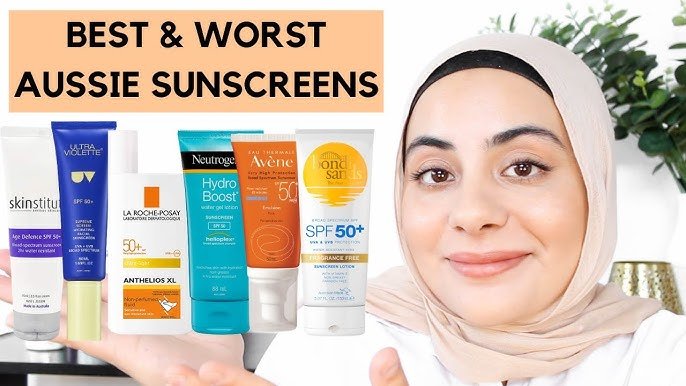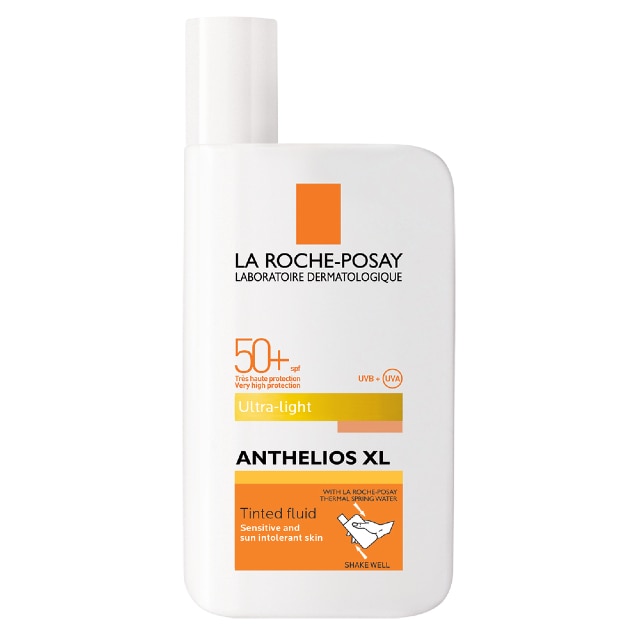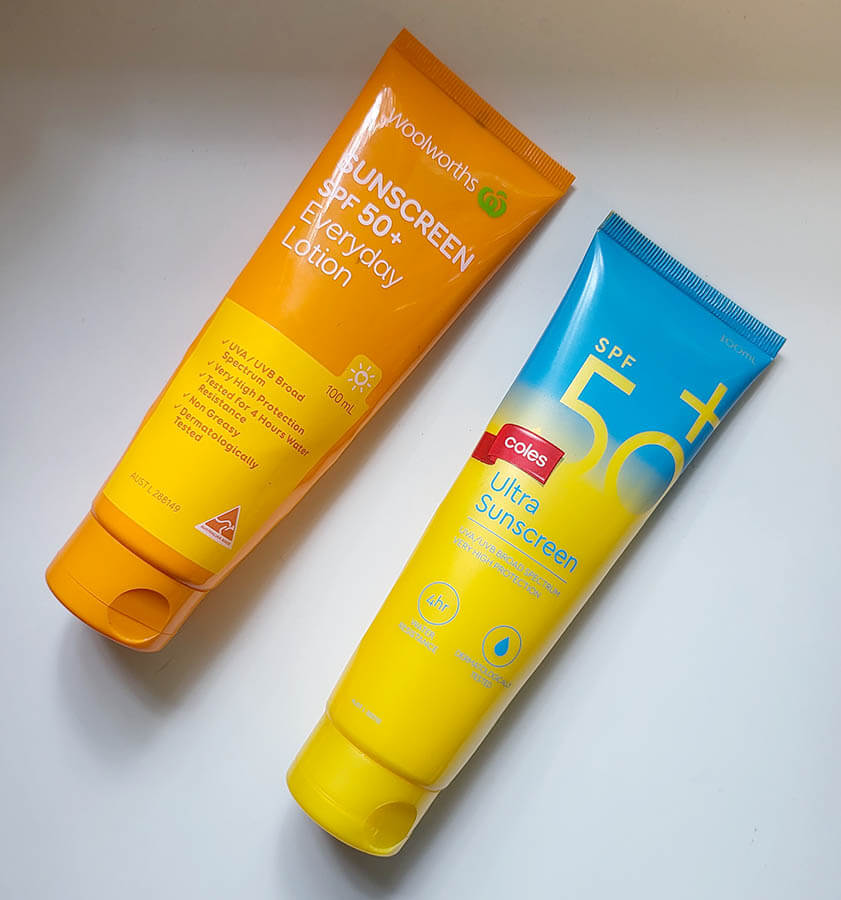
**Best Sunscreen Australia:** The best sunscreen in Australia offers broad-spectrum protection and is SPF 50+. It should be water-resistant and suitable for all skin types.
Australia’s harsh sun makes sunscreen a daily necessity. The ideal sunscreen provides comprehensive protection against UVA and UVB rays. Opt for SPF 50+ for maximum defense against sunburn and skin damage. Water resistance is crucial, especially for beachgoers and outdoor enthusiasts.
Look for formulations that suit your skin type, whether oily, dry, or sensitive. Dermatologist-recommended brands often ensure better quality and effectiveness. Popular choices include Cancer Council, La Roche-Posay, and Neutrogena. Regular application and reapplication are essential for optimal protection. Always read reviews and check ingredients to avoid harmful chemicals. Prioritize your skin’s health by choosing a reliable, high-quality sunscreen.
Best Sunscreen Australia
Finding the best sunscreen in Australia has been a game-changer for me! With the intense sun here, a high SPF and water-resistant formula is essential. I’ve tried a few brands, and I finally found one that feels lightweight, doesn’t clog my pores, and keeps my skin protected all day. It’s a must-have for anyone living under the Aussie sun!

Credit: www.vogue.com.au
Importance Of Sunscreen
The sun in Australia is strong. Sunscreen is vital for healthy skin. It protects against harmful UV rays. This helps prevent skin damage and skin cancer.
Protecting Your Skin
Australia’s sun can burn your skin quickly. Sunscreen forms a protective layer on your skin. This layer absorbs or reflects UV rays. Use sunscreen daily to avoid sunburn.
Sunscreen also prevents premature aging. The sun can cause wrinkles and sunspots. Sunscreen keeps your skin looking young and healthy.
Preventing Skin Cancer
Skin cancer is a serious issue in Australia. UV rays can damage the DNA in skin cells. This damage can lead to skin cancer. Sunscreen reduces the risk of skin cancer.
Using sunscreen every day is a simple step. It can save your life. Make sunscreen a part of your daily routine.

Credit: labmuffin.com
Types Of Sunscreens
Australia’s sun can be harsh. Therefore, choosing the right sunscreen is important. There are two main types of sunscreens: Physical and Chemical. Understanding the differences helps in making the right choice for your skin.
“Explore the things to do in Geelong while staying sun-safe.”
Physical Sunscreens
Physical sunscreens, also known as mineral sunscreens, contain active mineral ingredients. These ingredients include zinc oxide and titanium dioxide. They work by sitting on top of the skin and reflecting UV rays.
Here are some key points about physical sunscreens:
- Provide broad-spectrum protection against both UVA and UVB rays.
- Start working immediately after application.
- Less likely to irritate sensitive skin.
- Can leave a white cast on the skin.
Physical sunscreens are ideal for people with sensitive skin. They also work well for children. Due to their reflective nature, they offer immediate protection.
“Don’t forget sunscreen and a reliable stove for cooking outdoors.”
Chemical Sunscreens
Chemical sunscreens contain organic compounds. These compounds include oxybenzone, avobenzone, and octinoxate. They work by absorbing UV rays, converting them into heat, and then releasing them from the body.
Here are some key points about chemical sunscreens:
- Usually thinner and spread more easily on the skin.
- Require about 20 minutes after application to start working.
- Less likely to leave a white cast.
- Can sometimes cause skin irritation or allergic reactions.
Chemical sunscreens are often preferred for daily use. They are great for those who dislike the white cast of physical sunscreens. Due to their formulation, they tend to feel lighter on the skin.
Choosing The Right Spf
Choosing the right SPF can be confusing. The sun in Australia is strong. Your skin needs the best protection. This guide will help you choose the right SPF for your skin.
Spf Levels Explained
SPF stands for Sun Protection Factor. It measures how well the sunscreen protects your skin. Here are the common SPF levels:
- SPF 15: Blocks 93% of UVB rays
- SPF 30: Blocks 97% of UVB rays
- SPF 50: Blocks 98% of UVB rays
Higher SPF means more protection. But no sunscreen blocks 100% of UV rays.
Factors To Consider
Many factors affect your choice of SPF. Here are some to think about:
| Factor | Importance |
|---|---|
| Skin Type | Fair skin needs higher SPF. Darker skin can use lower SPF. |
| Sun Exposure | Longer exposure needs higher SPF. Shorter exposure can use lower SPF. |
| Activity | Swimming or sweating needs water-resistant sunscreen. |
- Check your skin type.
- Think about your daily activities.
- Consider the time you spend in the sun.
Choose a sunscreen that fits your needs. Always reapply every two hours.
Top Sunscreens For Different Skin Types
Finding the perfect sunscreen can be tricky. Different skin types need different formulas. Let’s explore the best sunscreens for various skin types.
For Oily Skin
Oily skin needs a sunscreen that controls excess oil. Lightweight and non-greasy formulas are best. Here are some top choices:
| Sunscreen | Features |
|---|---|
| La Roche-Posay Anthelios XL Anti-Shine | Mattifying, SPF 50+, non-comedogenic |
| Neutrogena Ultra Sheer Dry-Touch | Broad-spectrum, water-resistant, oil-free |
For Dry Skin
Dry skin benefits from hydrating sunscreens. Look for moisturising ingredients. Here are some top picks:
- Cetaphil Daily Hydrating Lotion SPF 50+ – Lightweight, non-greasy, hydrating
- QV Face Moisturising Day Cream SPF 30 – Fragrance-free, gentle, nourishing
For Sensitive Skin
Sensitive skin needs gentle, hypoallergenic sunscreens. Choose mineral-based formulas. Here are some recommended options:
- Blue Lizard Australian Sunscreen Sensitive SPF 30+ – Mineral-based, fragrance-free, no parabens
- Sun Bum Mineral SPF 50 Sunscreen Lotion – Zinc oxide, reef-friendly, no synthetic fragrances
Water-resistant Options
Australia’s sunny climate makes sunscreen a must-have. Many people seek water-resistant options for outdoor activities. Whether for swimming or heavy sweating, the right sunscreen can protect your skin effectively.
Best For Swimming
Swimming requires a sunscreen that stays on your skin. Here are some top choices for water-resistant sunscreens perfect for swimming:
| Brand | SPF | Water-Resistance Duration |
|---|---|---|
| Neutrogena Beach Defense | 50+ | 80 minutes |
| La Roche-Posay Anthelios | 60 | 80 minutes |
| Banana Boat Ultra Sport | 50 | 80 minutes |
- Neutrogena Beach Defense: High SPF and long-lasting.
- La Roche-Posay Anthelios: Gentle on sensitive skin.
- Banana Boat Ultra Sport: Ideal for intense water activities.
Best For Sweating
Outdoor sports and exercises can make you sweat. These sunscreens are designed to stay effective through heavy sweating:
- Coppertone Sport: SPF 50, 80 minutes of sweat resistance.
- Blue Lizard Australian Sunscreen: SPF 30+, 40 minutes of sweat resistance.
- EltaMD UV Sport: SPF 50, 80 minutes of sweat resistance.
Each of these options provides excellent protection. They are perfect for sports enthusiasts. Stay protected and enjoy your outdoor activities with peace of mind.
Sunscreens For Kids
Choosing the right sunscreen for kids is essential. Their skin is delicate and needs special care. In Australia, where the sun is strong, protecting your child’s skin is crucial. Below, we explore the best sunscreens for kids, focusing on gentle formulas and easy application.
Gentle Formulas
Kids have sensitive skin, so a gentle formula is a must. Look for sunscreens labeled as hypoallergenic. These sunscreens are less likely to cause allergies.
Mineral-based sunscreens are also a good choice. They use natural ingredients like zinc oxide and titanium dioxide. These ingredients sit on top of the skin and reflect harmful UV rays.
Here is a quick comparison of some popular gentle formulas:
| Brand | SPF | Key Ingredients |
|---|---|---|
| Banana Boat Kids | SPF 50+ | Zinc Oxide, Aloe Vera |
| Blue Lizard Sensitive | SPF 30+ | Titanium Dioxide, Zinc Oxide |
| Neutrogena Pure & Free Baby | SPF 50 | Zinc Oxide, Titanium Dioxide |
Easy Application
Applying sunscreen on kids can be challenging. Therefore, easy application is important. Spray sunscreens and roll-on formulas are very user-friendly. They allow for quick and even coverage.
Cream sunscreens can be a bit messy, but they offer thorough coverage. Here are some easy-to-apply options:
- Banana Boat Kids Spray – Quick and easy to apply.
- Blue Lizard Sensitive Roll-On – Convenient for on-the-go use.
- Neutrogena Pure & Free Baby Cream – Offers excellent coverage.
Ensuring your child is protected from the sun is simple with these sunscreens. Choose the one that best suits your needs and preferences.
Eco-friendly Sunscreens
Eco-friendly sunscreens are gaining popularity in Australia. They protect your skin without harming the environment. Choosing the right sunscreen can help protect marine life and reduce pollution.
Reef-safe Options
Reef-safe sunscreens are free of harmful chemicals. Oxybenzone and octinoxate are two such chemicals. These chemicals can damage coral reefs and marine life.
Look for sunscreens with natural minerals. Zinc oxide and titanium dioxide are safe options. These minerals provide broad-spectrum protection.
- Zinc oxide: Blocks both UVA and UVB rays.
- Titanium dioxide: Offers strong UV protection.
Biodegradable Ingredients
Biodegradable ingredients break down naturally in the environment. They do not leave harmful residues. This helps to keep water sources clean.
Some biodegradable ingredients to look for include:
| Ingredient | Benefits |
|---|---|
| Aloe Vera | Soothes and moisturizes the skin. |
| Coconut Oil | Provides hydration and UV protection. |
By choosing sunscreens with biodegradable ingredients, you help protect nature. These ingredients are gentle on the skin as well.

Credit: m.youtube.com
Budget-friendly Picks
Finding the best sunscreen in Australia does not have to break the bank. Many affordable sunscreens offer excellent protection against harmful UV rays. Below, we explore budget-friendly options that provide high quality without a hefty price tag.
Affordable Brands
Several brands offer sunscreens that are both effective and wallet-friendly. These brands have been tested and trusted by many Australians.
- Banana Boat: Known for its broad-spectrum protection and affordability.
- SunSense: Offers various formulas suitable for different skin types.
- Neutrogena: Renowned for its lightweight, non-greasy sunscreens.
High-quality Budget Options
Not all budget sunscreens compromise on quality. Some options are formulated with high-quality ingredients and offer excellent protection.
| Brand | Product | SPF | Price |
|---|---|---|---|
| Banana Boat | Ultra Protect Sunscreen Lotion | SPF 50+ | $8.99 |
| SunSense | Daily Face SPF 50+ | SPF 50+ | $9.95 |
| Neutrogena | Ultra Sheer Dry-Touch Sunscreen | SPF 50+ | $10.49 |
These budget options provide excellent protection and are readily available in stores. They contain high-quality ingredients and are suitable for everyday use.
Banana Boat Ultra Protect offers broad-spectrum protection and is water-resistant. SunSense Daily Face is ideal for everyday use and is non-comedogenic. Neutrogena Ultra Sheer is lightweight and has a matte finish, perfect for oily skin.
Frequently Asked Questions
What Is The Best Sunscreen In Australia?
The best sunscreen in Australia offers broad-spectrum protection, is SPF 30 or higher, and is water-resistant. Popular brands include Cancer Council, La Roche-Posay, and Neutrogena.
How Often Should I Reapply Sunscreen?
You should reapply sunscreen every two hours. Reapply immediately after swimming, sweating, or towel drying to ensure continuous protection.
Can I Use Sunscreen On Sensitive Skin?
Yes, you can use sunscreen on sensitive skin. Look for sunscreens labeled “for sensitive skin” and those free of fragrances and irritants.
What Spf Is Recommended For Daily Use?
For daily use, dermatologists recommend using sunscreen with at least SPF 30. This provides adequate protection against UVB rays and helps prevent sunburn.
Choosing the best sunscreen in Australia can protect your skin from harmful UV rays. Quality sunscreen ensures safe outdoor activities. Always opt for broad-spectrum, water-resistant options. Remember to reapply every two hours. Protecting your skin now can prevent future damage.
Prioritize your skin health with the right sunscreen.
